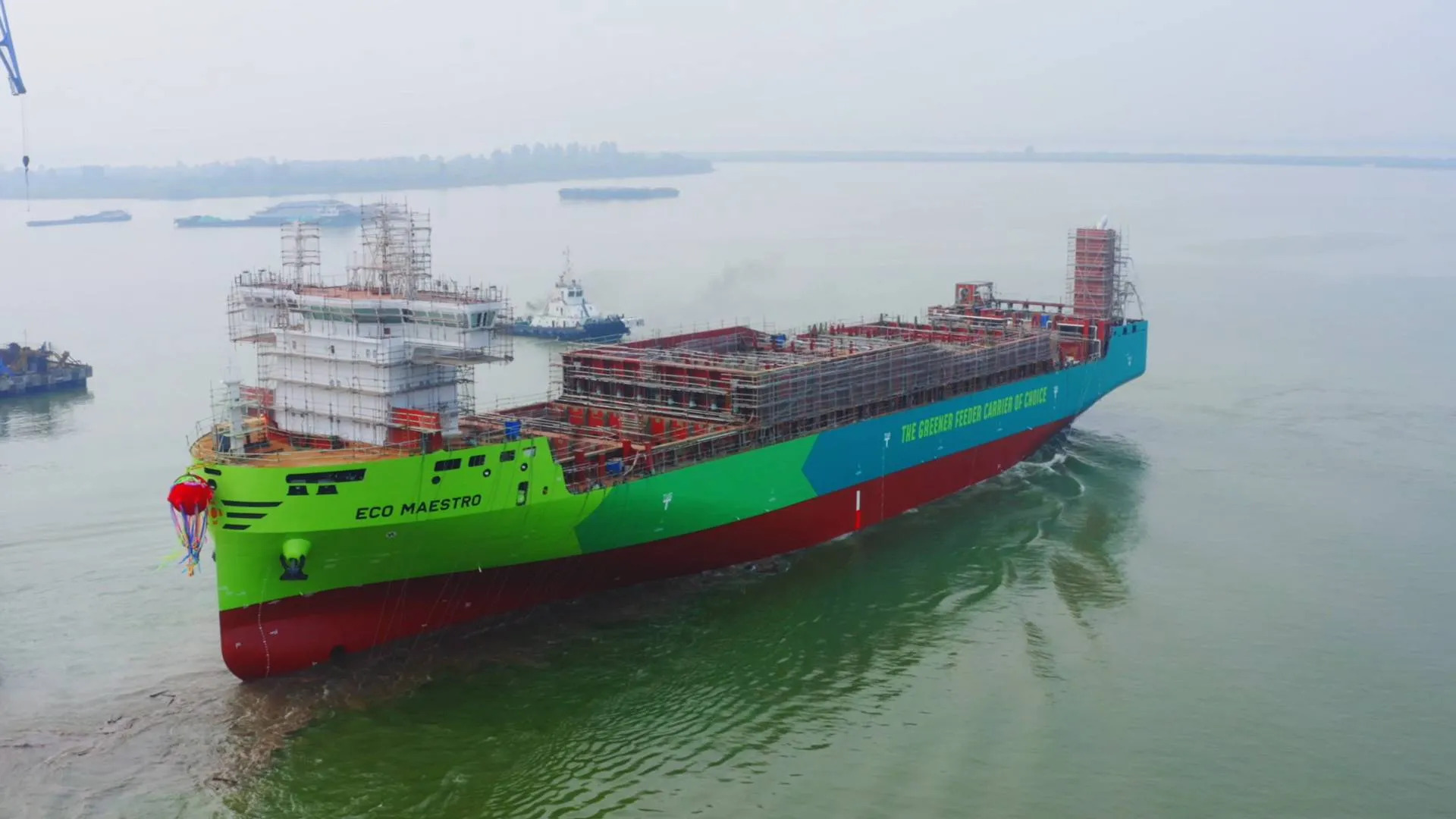Rotterdam, Netherlands — The first methanol-powered ship to ply routes between Europe’s busy ports was unveiled Tuesday in Rotterdam, with shipping owners hoping to spur efforts to bring down the industry’s huge carbon footprint.
The Eco-Maestro, a 13,675-tonne container carrier will head off to Antwerp in the next few days, before plotting a course for Klaipeda in Lithuania and Riga in Latvia, its owners said.
Capable of carrying more than 1,200 standard containers, the Eco-Maestro is one of a handful of ships globally that is capable of running on both “green” bio-methanol or normal fuel, which is far more polluting.
“We are providing the first feeder network in Europe running on methanol-powered ships,” said Francis Goh, X-Press Feeders chief operating officer.
Completed in China earlier this year, the Eco-Maestro is kitted out with the latest engines that can run on methanol — a sustainable fuel made from decomposed organic matter.
“We estimate that the methanol we are using will emit some 65 percent less carbon” than normal fuel, Goh told AFP.
Global shipping — which generally runs on diesel and other bunker fuels — contributed around two percent of the world’s carbon emissions in 2022, the International Energy Agency says.
New guidelines by the International Maritime Organisation said shipping emissions needed to be cut by at least 40 percent by 2030 and down to zero by around 2050 if the Paris Climate Accords are to be achieved.
There are now some 29 methanol-powered ships in operation globally, which is expected to double by the end of the year, according to Norwegian-based maritime services provider DNV.
The surge in methanol-powered ships is largely driven by the containership sector.
X-Press Feeders will use a total of 14 dual-fuel vessels on its Rotterdam to Baltic feeder routes which also included regular services to Helsinki.
So-called “feeder ships” play an important role in the logistics supply chain as they transport containers between smaller ports and larger “hub” ports such as Rotterdam and Antwerp.








